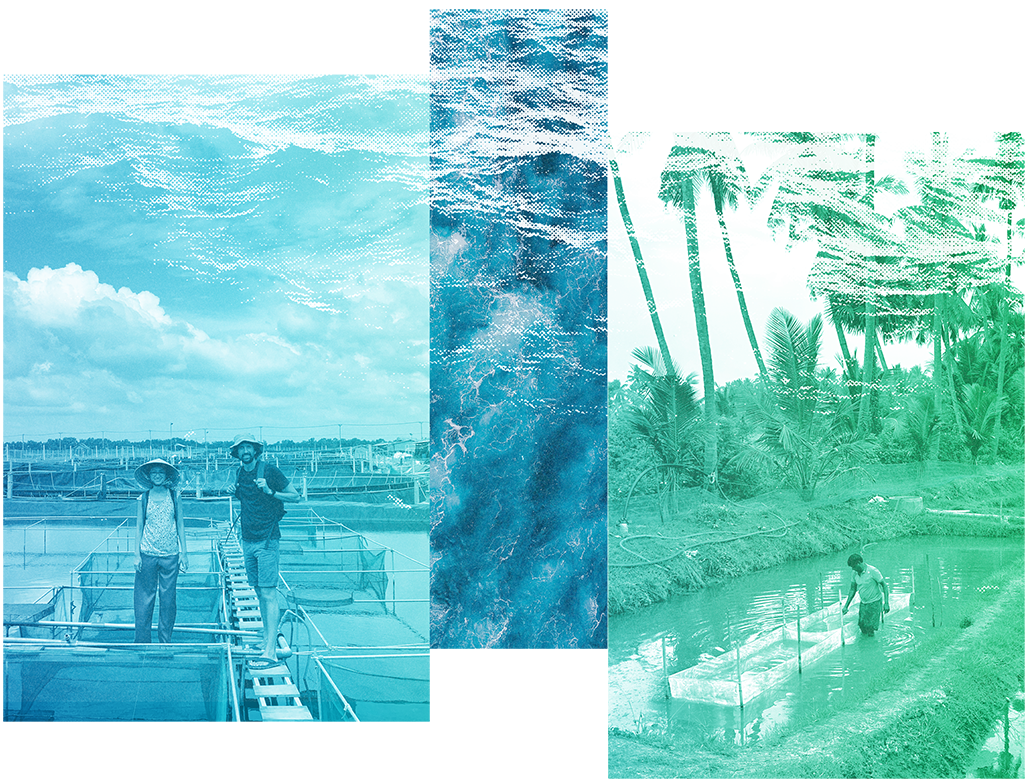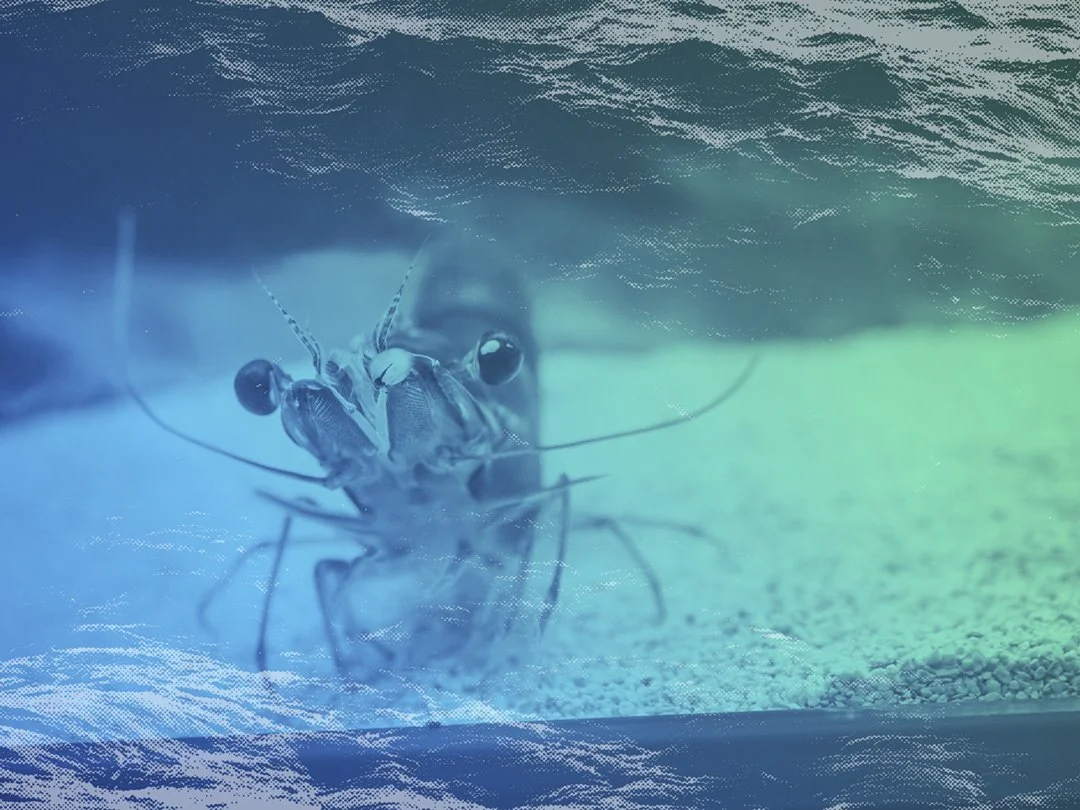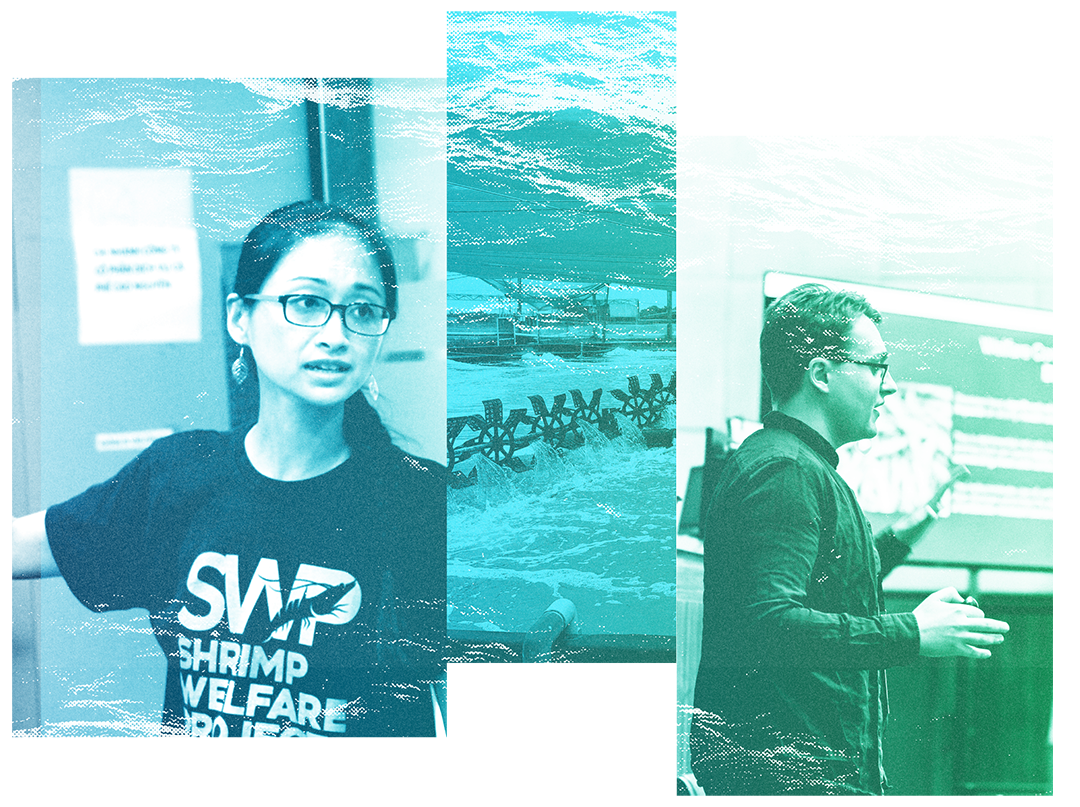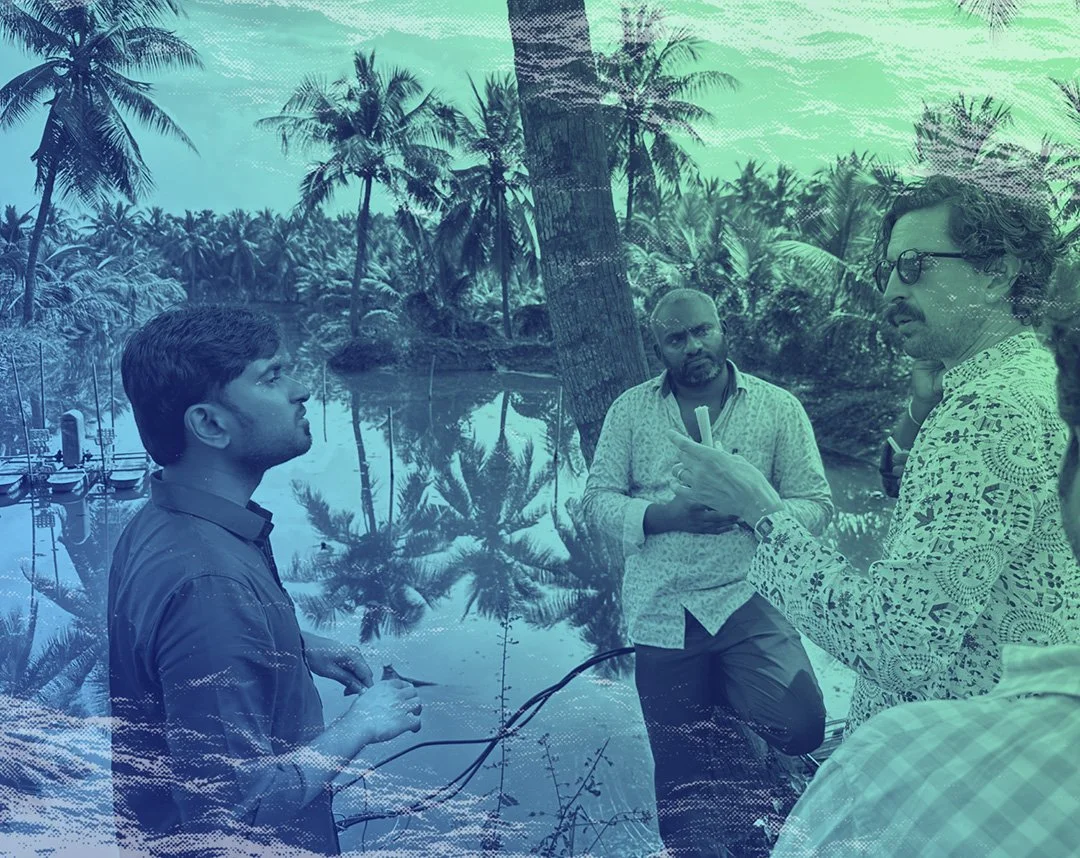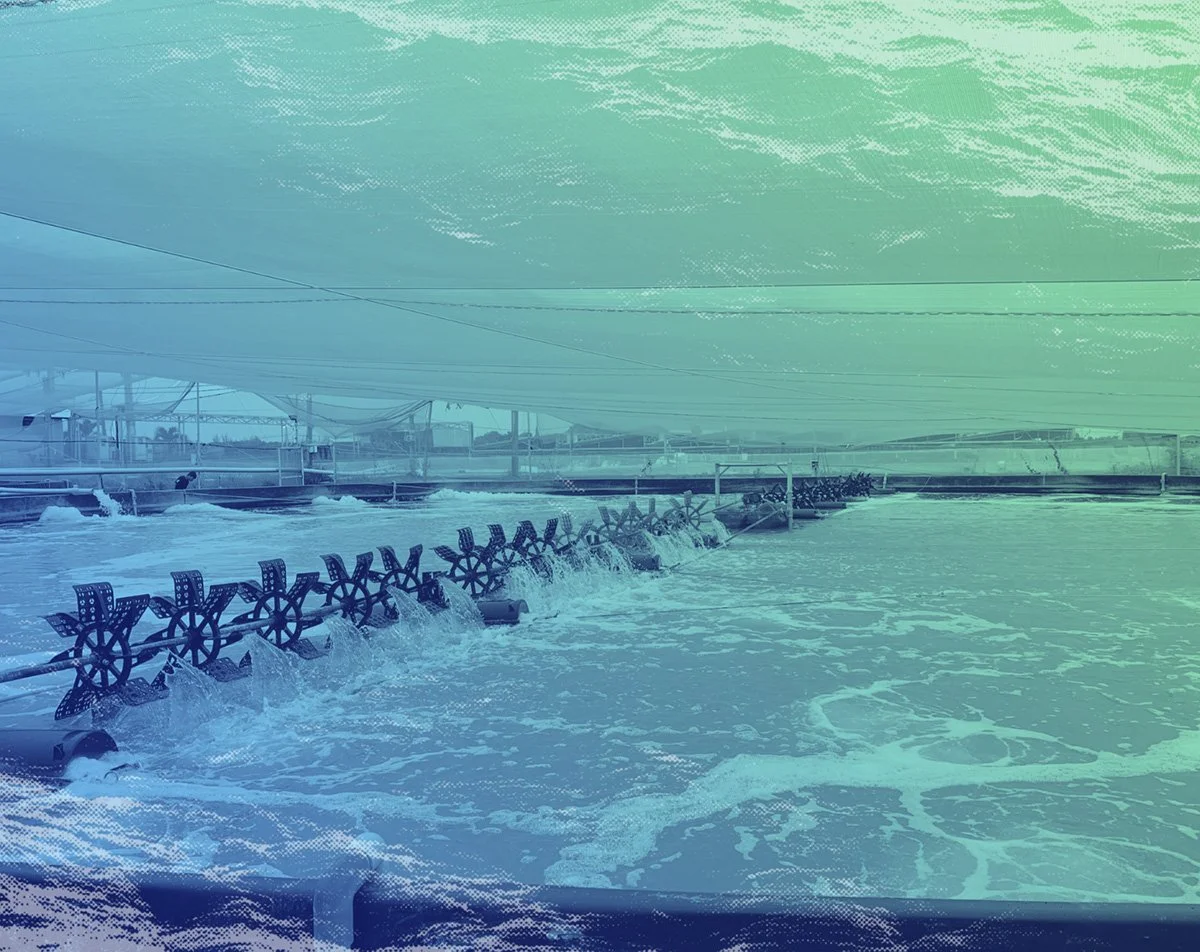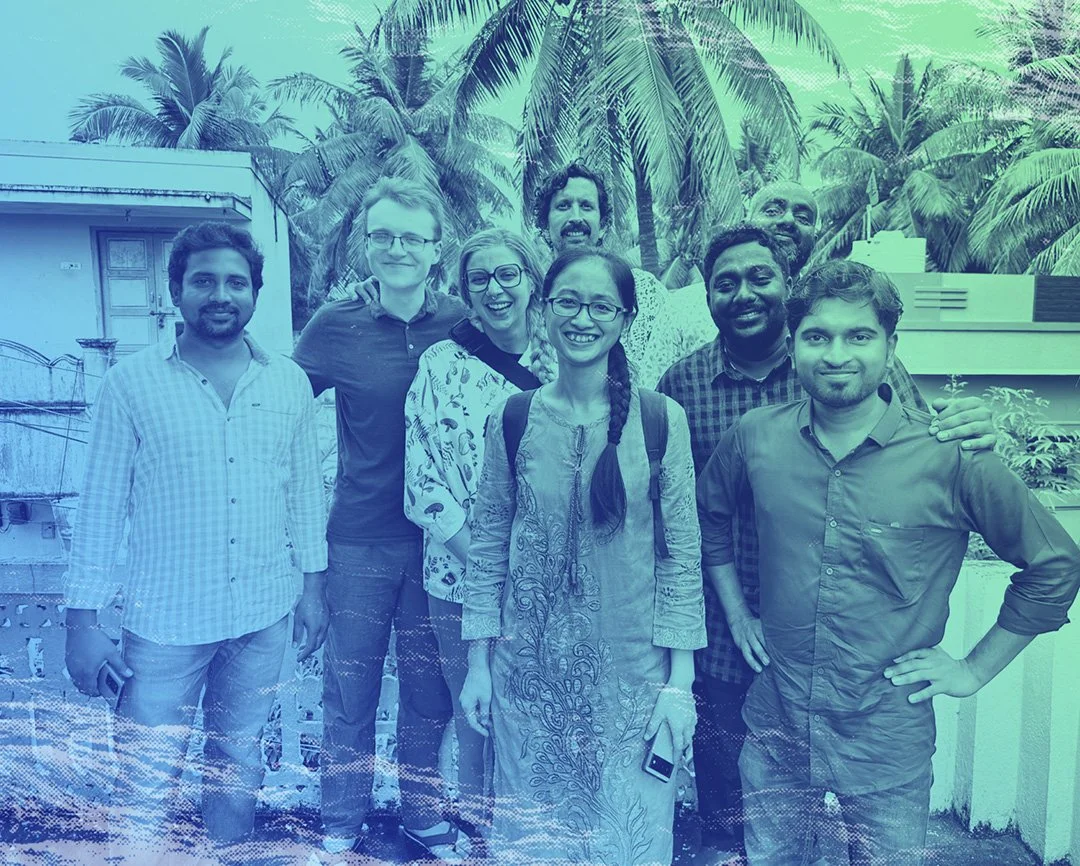We guide the shrimp farming industry towards higher welfare practices for a more sustainable and ethical future

~440 billion shrimps are farmed each year.
That’s more than 5x the total number of all farmed land animals combined. This makes shrimp welfare an area of high impact, where your involvement can lead to great change.
Discover the impact that industry representatives have already made with our support—see how many shrimp lives have been improved.

Our Interventions
Corporate Engagement
We are dedicated to supporting the seafood industry in its transition to more humane and higher welfare shrimp farming practices.
We collaborate closely with global producers, seafood suppliers, and retailers to improve farming practices, especially in harvest and slaughter. Our approach includes providing guidance and support at every stage of the welfare improvement process. This encompasses consultation on best practices, implementation strategies, and offering free services and equipment to aid in the transition.
Humane Slaughter Initiative
This initiative focuses on improving animal welfare during slaughter in the global aquaculture industry.
The programme aims to promote humane slaughter practices by providing electrical stunners to aquaculture operations at minimal or no cost, ensuring that animals experience minimal stress and pain during slaughter.
This effort enhances animal welfare standards and supports the industry's commitment to ethical and sustainable practices.
Eyestalk Ablation-Free
This page is dedicated to celebrating producers who have committed to using non-ablated broodstock. We also highlight retailers and seafood suppliers who have implemented strict policies to eliminate the practice of eyestalk ablation in their supply chain.
Farmer Engagement - India
We are working with farmers to directly improve shrimp welfare in their farms.
To achieve this, we launched Sustainable Shrimp Farmers of India (SSFI), an initiative to promote best welfare-focused management practices in shrimp farming. This also provides them with a forum to network, interact, learn from farmers and our experts.
Research
We actively work on a number of research projects to explore and address key uncertainties.
As a result, we are able to produce reports that communicate our findings to a broader audience. We also collect external resources that we have found helpful in shaping our understanding of shrimp welfare.
Outreach
We're raising issue salience by speaking up about shrimp welfare across audiences around the world.
We raise awareness about shrimp welfare through conferences, podcasts, and articles in the shrimp industry, animal welfare, and Effective Altruism spaces. We also collaborate with other organisations in this field.



